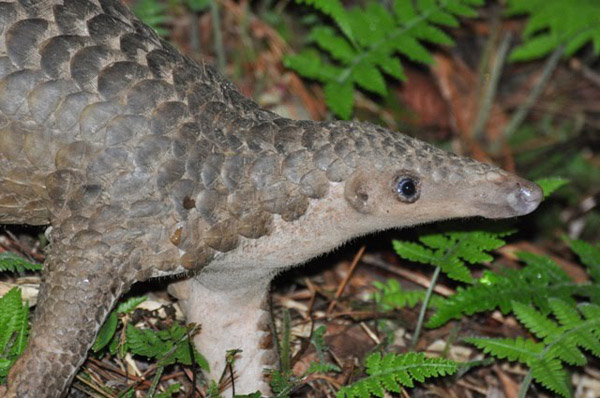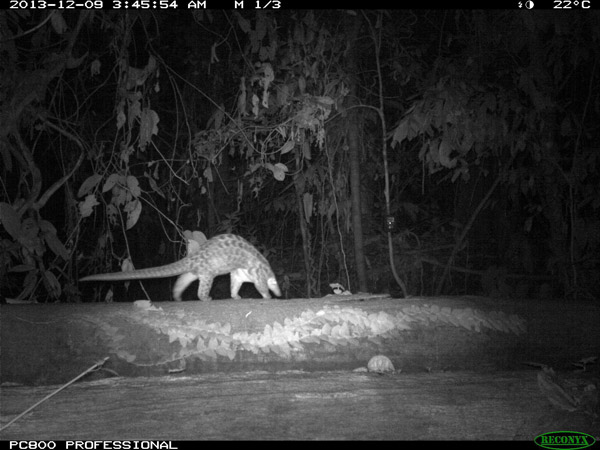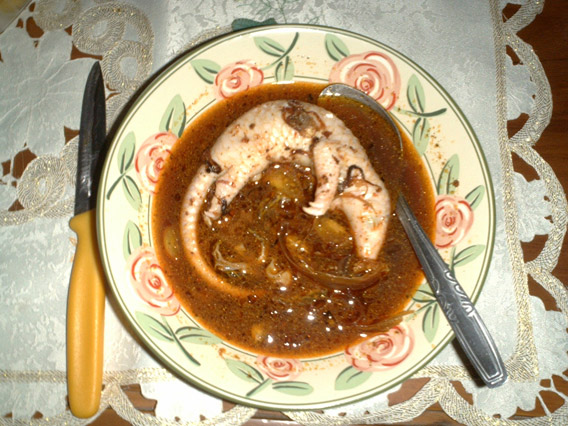
Sunda pangolin. Courtesy of the Danau Girang Field Centre
Lush Cosmetics has agreed to support an effort to battle trafficking of the Sunda pangolin.
Lush will provide funding to an anti-poaching project run by the Sabah Wildlife Department and the Danau Girang Field Centre in Malaysian Borneo. The project includes an awareness-raising campaign and a push to get the scaly anteater listed on Malaysia’s protected species list.
“In a two-pronged campaign, the project will reach out to rural communities to engage their participation in conservation by reporting wildlife crime when they see it and to increase awareness among rural communities of which animals are protected by law,” said Benoit Goossens, Director of Danau Girang Field Centre, in a statement. “Our second target group for awareness will be tourists from China and Hong Kong who visit Sabah every year.”

Camera trap picture of a Sunda pangolin taken in one of the protected areas in Sabah, where poaching is still rampant. Photo courtesy of Danau Girang Field Centre.
“Next month, we will organize a one-day workshop on pangolin conservation and awareness, and bring together relevant practitioners in research, enforcement and environmental education to share current or planned activities on pangolins, identify gaps in resources, knowledge and funding, and explore opportunities for mutual support. Our first objective will be to prepare a Cabinet paper for upgrading the Sunda pangolin to Schedule 1 of Totally Protected Species of the Wildlife Conservation Enactment.”
Pangolins are slaughtered on a massive scale across Asia and Africa to supply the traditional Chinese medicine market. The Sunda pangolin is particularly targeted.
“The Sunda pangolin is found in much of South East Asia and currently holds the distinction of being the most heavily trafficked animal in the world,” said Abd Karim Dakog, Senior Wildlife Officer in charge of enforcement at the Sabah Wildlife Department. “It is protected under Malaysian law and no international trade in any Asian pangolin species is allowed under the Convention on International Trade in Endangered Species (CITES). Yet they remain one of the most commonly seen mammals in wildlife trade confiscations in recent months. While they have not been detected in recent busts in Sabah, the Wildlife Department is concerned that pangolins remain high on the list of endangered animals targeted by poachers in the state.”

Pangolin fetus is considered a delicacy in some countries. Photo courtesy of TRAFFIC.
Lush is well known for its activism on social and environmental issues. In 2010, the company launched anti-palm oil campaign and developed a palm-free soap base, which drastically cut its palm oil consumption. Since then it has supported causes ranging from orangutan conservation to fighting animal testing.